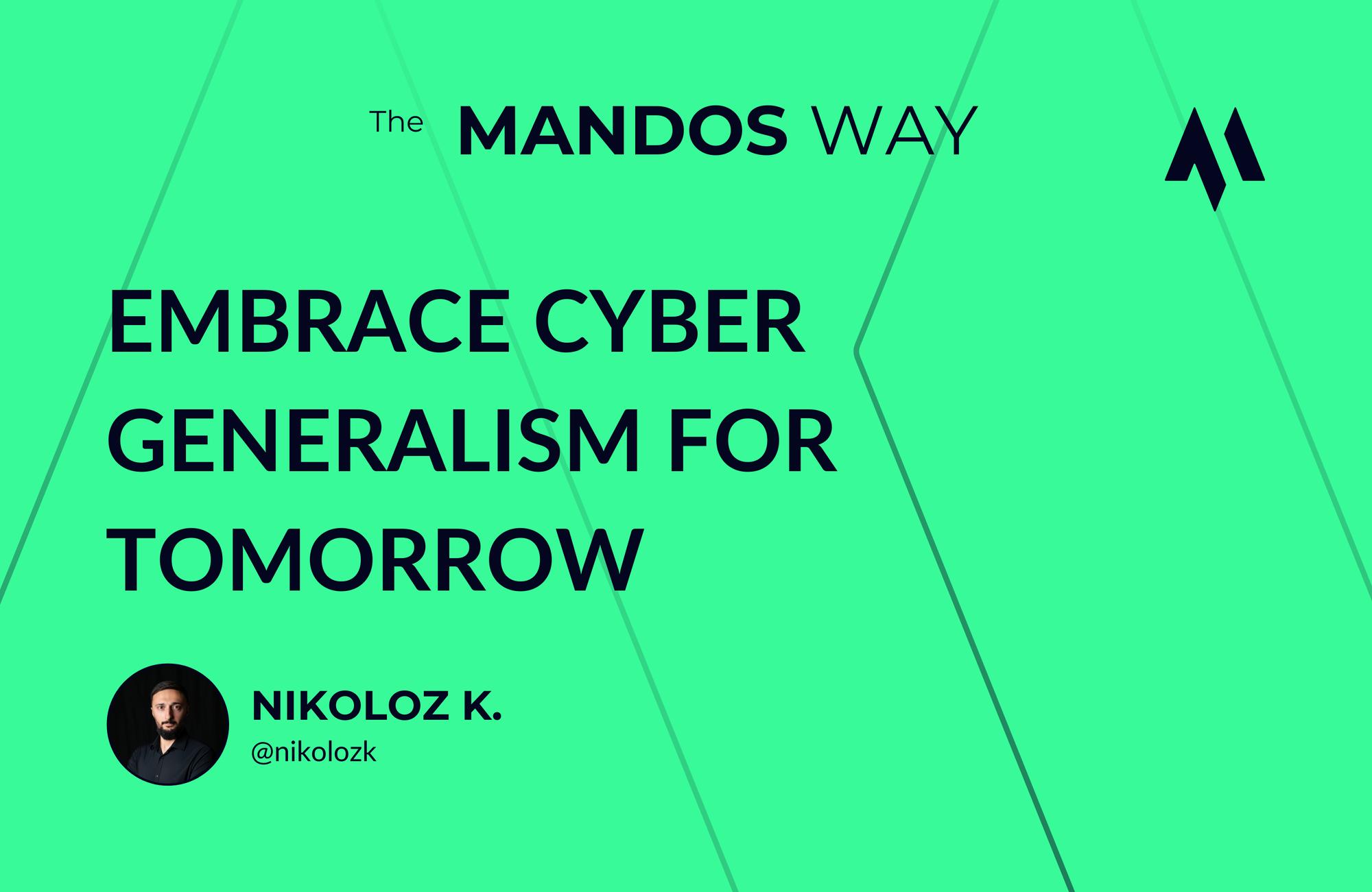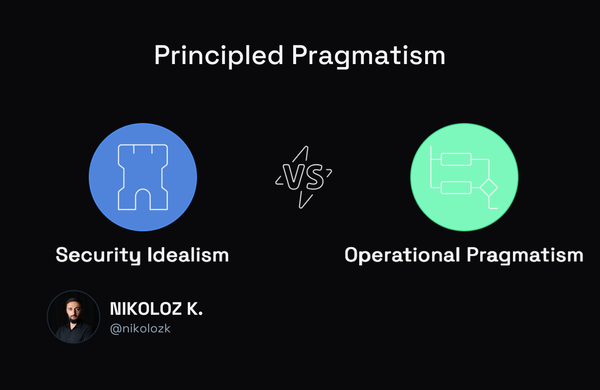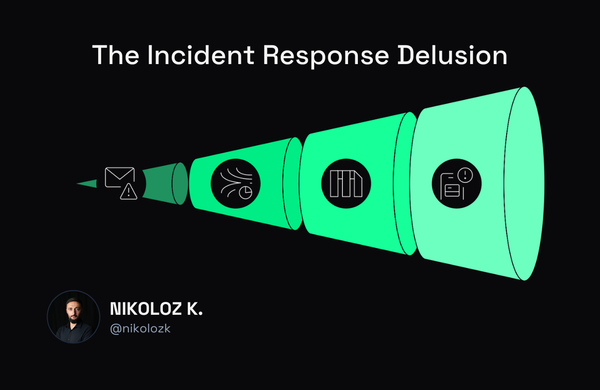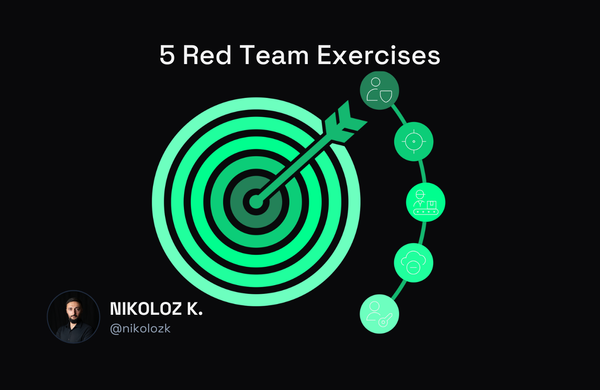The Future is for Cyber Strategists

Nikoloz Kokhreidze
In the future, Cyber Strategists will be essential for effectively orchestrating AI for cybersecurity. A narrow knowledge of a single area will be less valuable

In the next five years, the most sought-after skill in cybersecurity will not be the deep and narrow knowledge of a single technology or area. Rather, the ability to commandeer AI agents across various domains.
That's the world we're heading towards and it is inevitable, we just have to adapt.
AI is rapidly mastering coding, query generation, language understanding, in-depth analysis and so much more. This leads to a seismic shift in cybersecurity skillset, requiring us to adapt to these changes.
In next five years AI will handle your cloud deployments, detection engineering, threat intelligence and incident response. but it will need your strategic guidance to execute effectively. In a nutshell, you will have to transition from a specialized role to a highly skilled cyber strategist.
And by strategist I do not mean generalist. I also do not mean "jack of all trades, master of none" or "certificate snob". Rather, I'm referring to an individual who possesses deep knowledge in multiple areas, coupled with the strategic vision to synergize those specialties within the same domain.
Now, let's dive into how AI is taking over technical fields and what this means for the human workforce in cybersecurity.
Domination of AI in Technical Fields
We're witnessing a phenomenon where AI is taking over roles traditionally filled by security engineers and analysts. This trend is driven by:
- The sheer volume of technical information and documentation available today.
- Computing power becoming cheaper.
- The increasing sophistication and accuracy of AI algorithms.
- The growing number of organizations that are recognizing the benefits of automating security tasks with AI.
AI, with its ability to process and understand vast datasets and draw conclusions, is perfectly suited for engineering and analytic.
Take, for example, the way AI can now generate EDR queries or write intricate code - albeit with errors, but we should not forget where we were just 8 months ago.
This capability is becoming a fundamental part of how technical work is done. But it's essential to ask: what does this mean for cybersecurity professionals who have spent years honing these very skills?
The answer lies in understanding the evolving nature of our roles.
As AI takes over these technical tasks, our focus must shift. We need to evolve to oversee and direct these powerful tools in the broader context of cybersecurity strategy.
But why being a strategist will become more valuable?
The Rising Importance of Strategic Skills
AI, as adept as it is at handling specific tasks, still requires human direction, especially in a field as nuanced as cybersecurity.
Cybersecurity professionals will be able to step back from the trenches of daily technical tasks and tactical decision-making. These areas will increasingly become the domain of AI.
However, this doesn't diminish our role; rather, it elevates it to a more strategic level.
We will be in a position where understanding the interplay between different cybersecurity components - be it cloud security, network defense, or threat intelligence - becomes more critical than ever.
And our ability to connect these elements with business objectives and initiatives will be a game-changer.
Let's explore why this shift isn't just about expanding our skill sets.
Strategy Over Operations
AI performs well with set tasks that are all about technology. However, it lacks the finesse needed to sketch out a comprehensive cybersecurity strategy that fits business's vision and goals - at least for now.
The core of this shift in thinking boils down to strategic insight. This is a fundamental human asset that AI has yet to conquer. This insight isn't just about understanding the various cybersecurity tools and techniques out there.
No, it goes way beyond that.
It's about getting a solid grip on how these tools and techniques align with, and safeguard, the individual facets of a business. Devising a security strategy that matures along with the business and matches its specific threats is still a complex task and far from cookie-cutter.
So, today, with this context in mind, who stands to lose?
Security leaders and CISOs who've backed themselves into industry-specific corners or haven't fully understood the tech that AI manages. Sure, their expertise still has worth, but it might not cut it if they can't shift gears from a director to an orchestrator.
AI as a Tool, Not a Strategist
AI has a specific and meaningful role. It's best used as a high-tech tool, a side-kick, in implementing strategies, not as the main strategist. Knowing the difference is vital for balancing the use of technology and the need for human supervision.
AI can make things simpler in the cybersecurity world. It can automate tedious tasks, break down complex data, and thus, give your human team the time to focus on strategic elements.
They can now spend more time evaluating potential risks, understanding the unique needs of the company, and developing tailored security measures.
Here is the best path forward: it is a human-machine partnership.
Your human team will come up with strategies based on a wide understanding of cybersecurity and the specific business environment. Meanwhile, AI will bring those strategies to life with its unmatched efficacy and precision.
This approach ensures strategies are not only robust and flexible but are also carried out rapidly and effectively.
AI brings a lot to the table when it comes to cybersecurity, but it doesn't replace the vital role humans play in guiding these tools for effective and responsible use.
By recognizing and using this relationship, companies can improve their security rapidly in ways that are innovative, yet practical.
Summary
- A broad understanding of various cybersecurity domains will be crucial.
- AI will be capable of performing technical cybersecurity tasks like coding and data analysis. This shift allows cybersecurity professionals to focus on higher-level strategic planning and decision-making.
- This strategist approach enables professionals to effectively guide AI and integrate various security components into a cohesive strategy.
- While AI excels in executing tasks, the creation of cybersecurity strategies, tailored to specific business needs, requires human insight and judgment.
P.S.: If this content resonates with you, consider following me on LinkedIn and X.
Nikoloz



